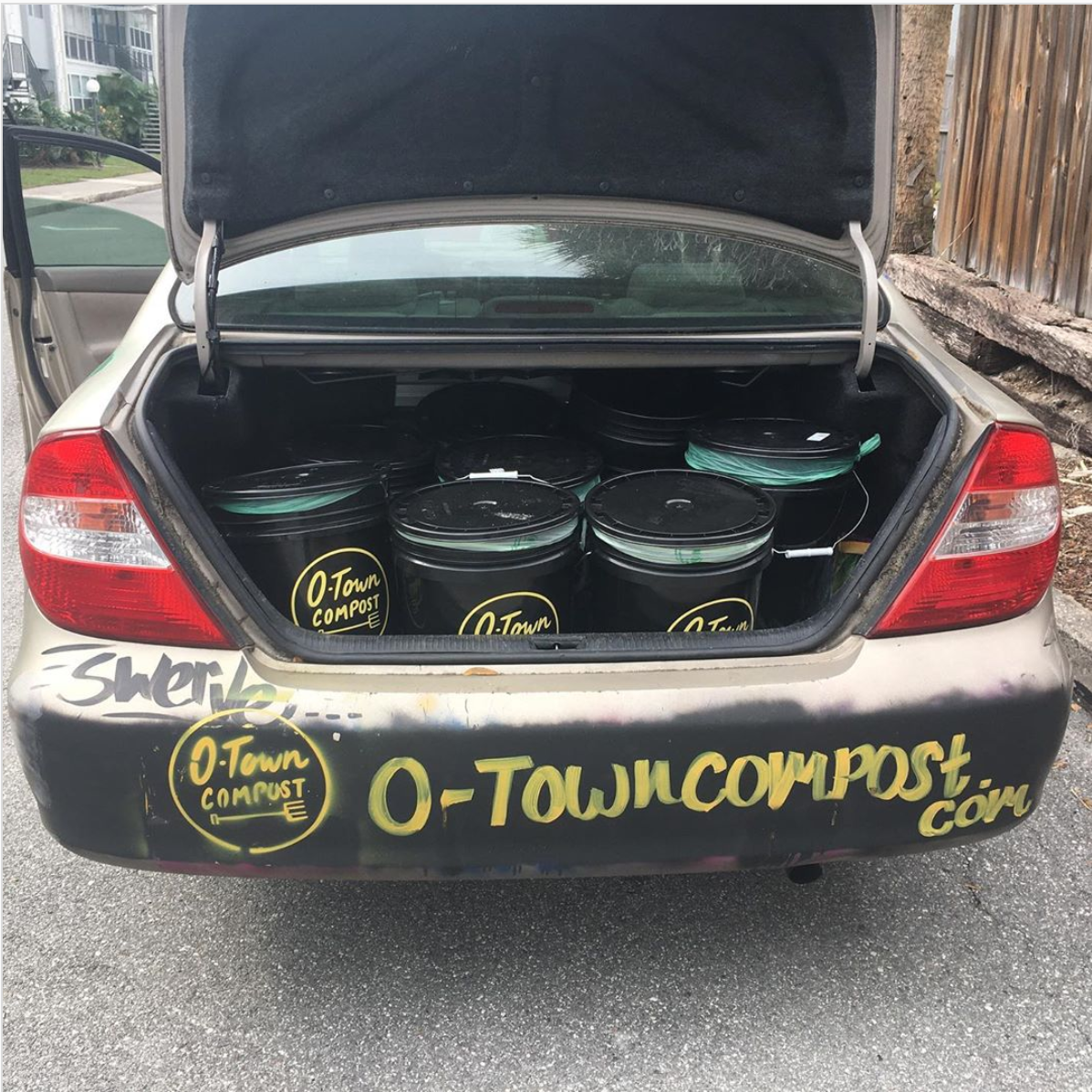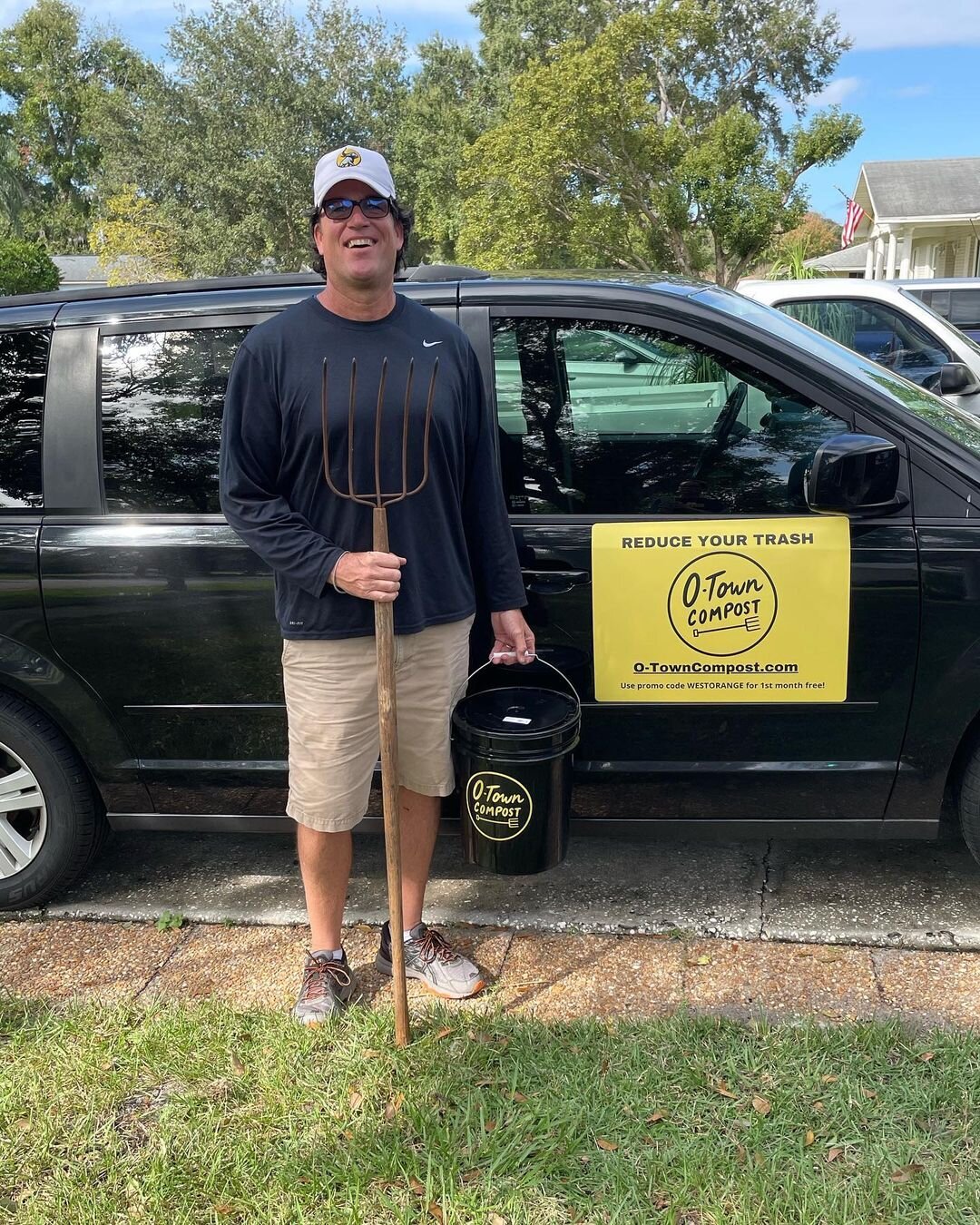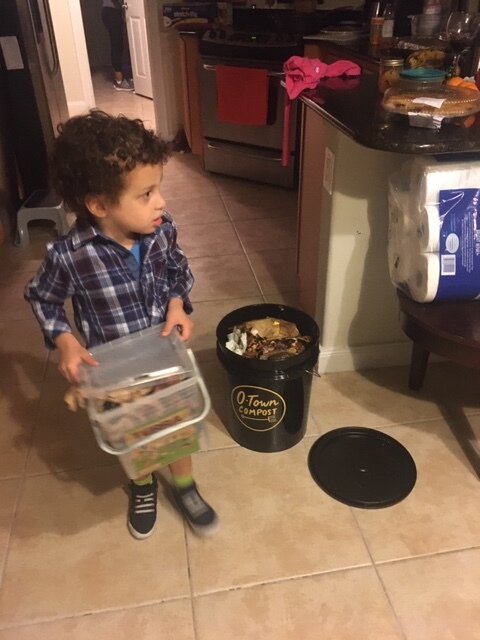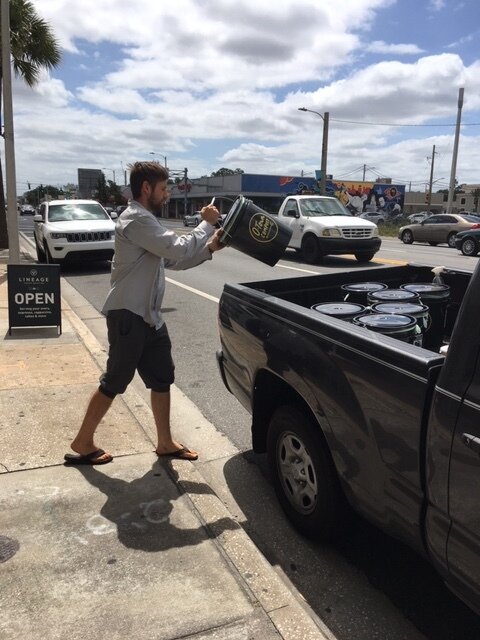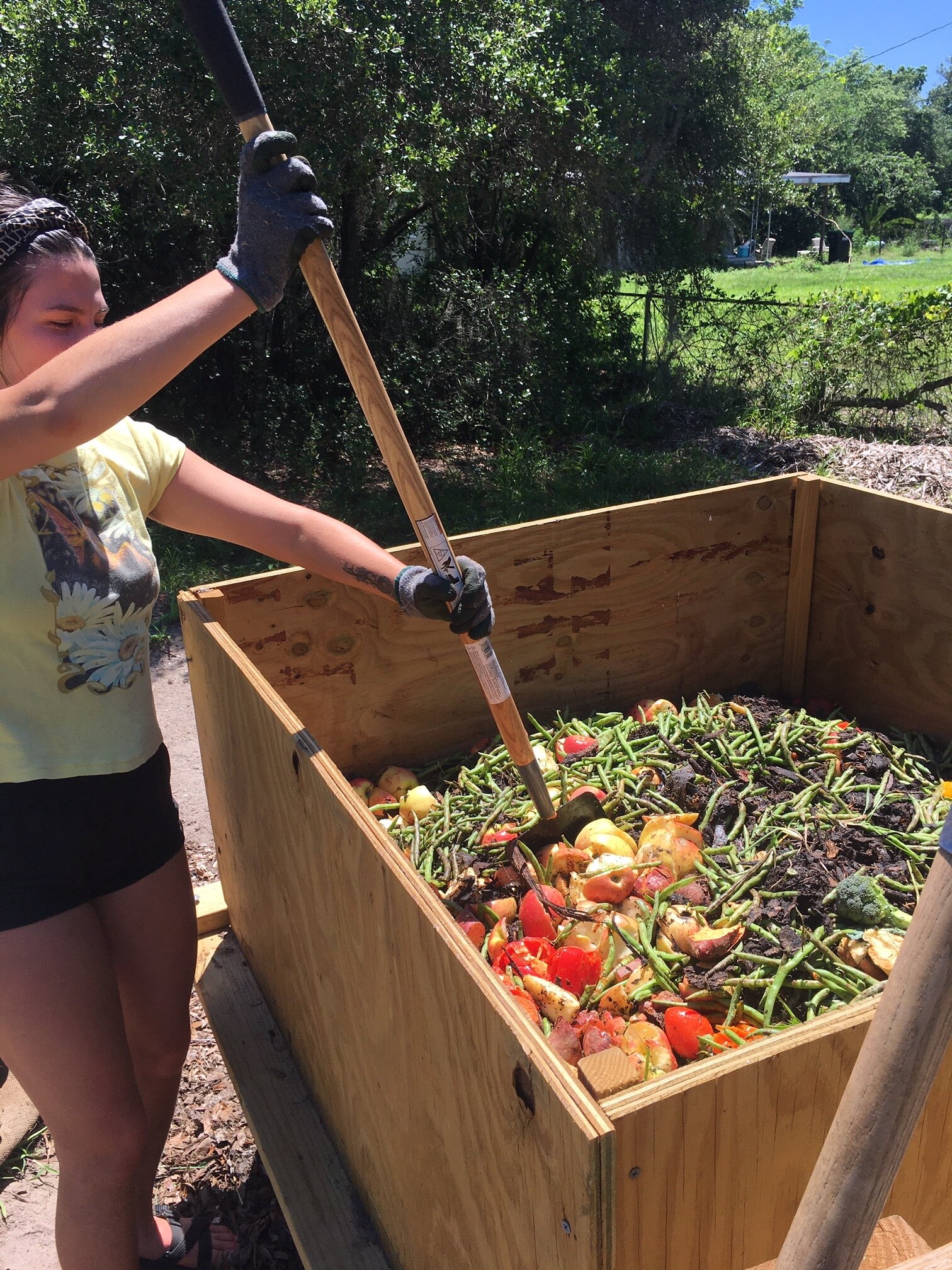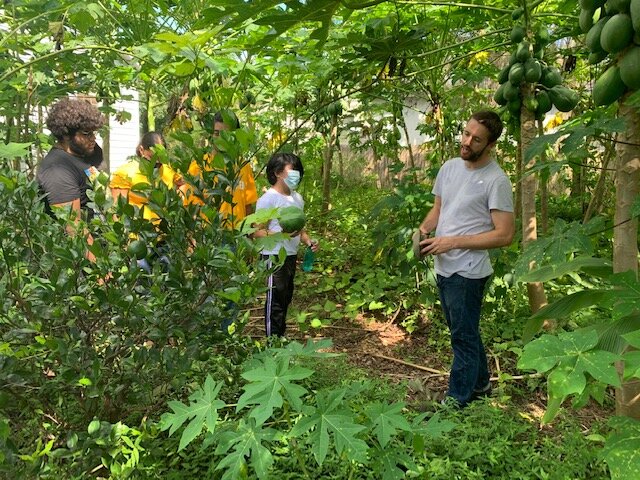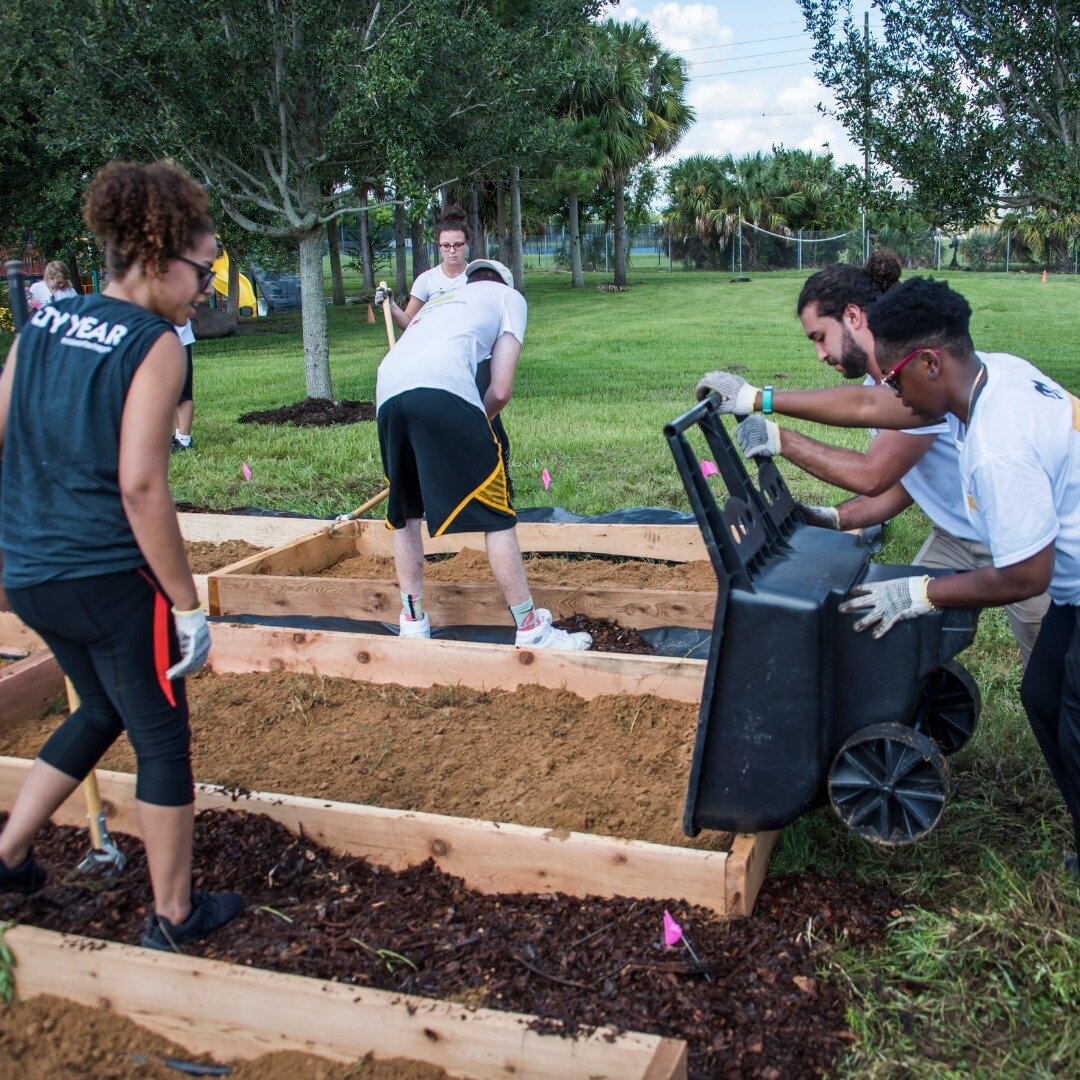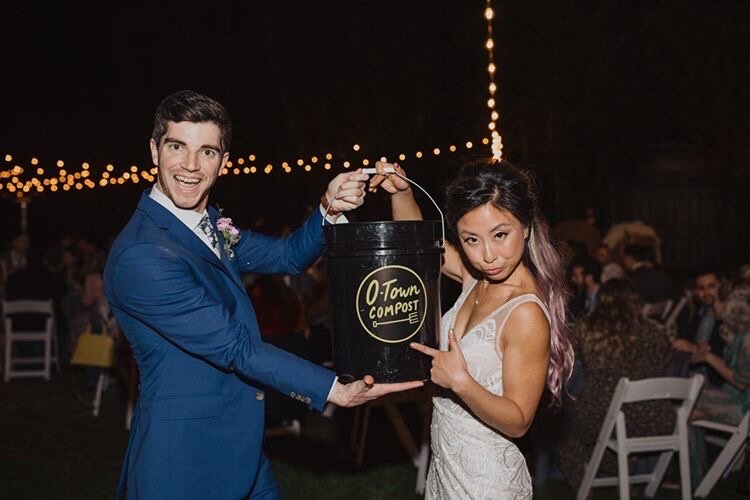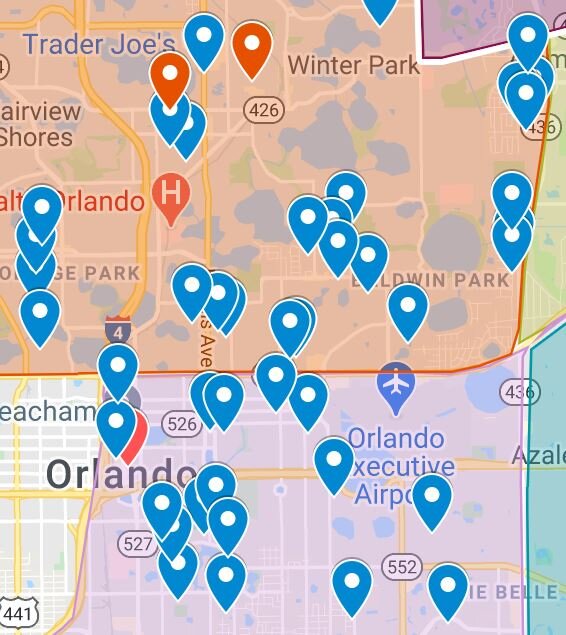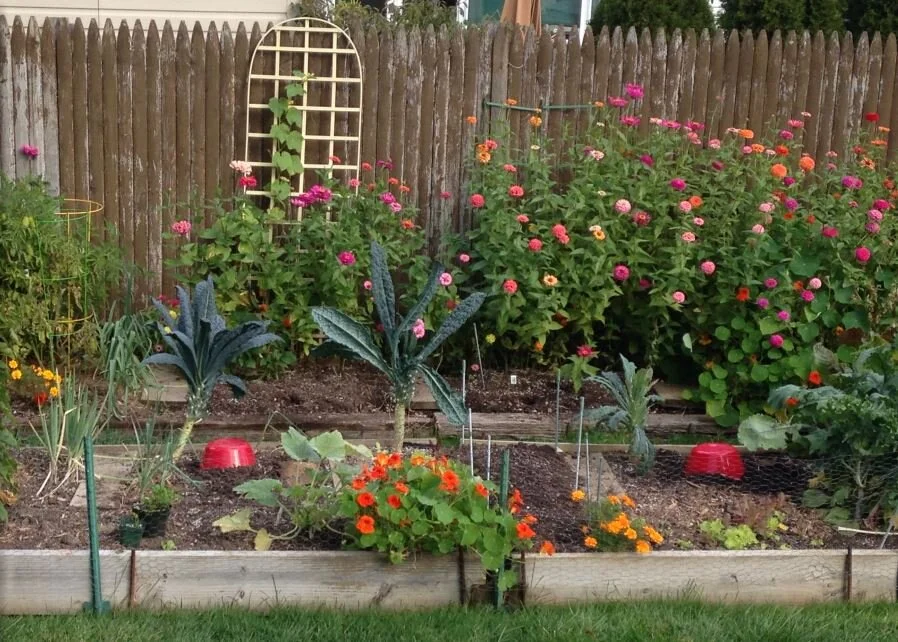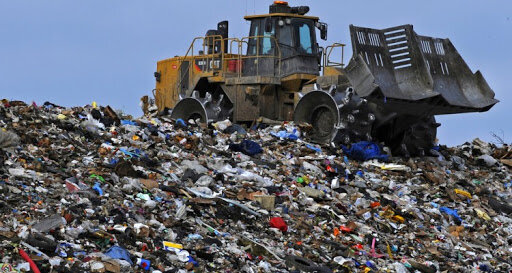I’ve been focused on clean energy and sustainability for my whole career, with a singular focus on how I can help in the generational challenge of fighting climate change. While professionally that passion has taken me to work with the U.S. Department of Energy, clean energy entrepreneurs, and more, I always try to stay cognizant that I need to walk the walk in my personal life as well. I’ve tried consistently to find new and impactful ways to bring that green mentality home with me. In my house, we drive an electric vehicle, we eat an entirely plant-based diet, and we do our best to reduce excess power consumption– though the thermostat will always be a battlespace!
I’d qualify these actions as great starts, but I knew we could always be making more progress. As I explored my next potential steps one option kept coming up: composting.
As we had recently moved from a 500 square foot studio apartment in Washington DC to a much more spacious townhouse in Orlando, Florida, I realized the green dream of composting could finally be a reality! Like a good sustainability-minded citizen, I went to the Orlando city government page to request a free composter that I had heard about. Thanks to the City Beautiful, I thought!
Only clearly I hadn’t done enough research, because the city dropped off the following behemoth (rubber ducky for scale):
While this large composter perhaps made sense for homes with yards and gardens, we’re in a townhome with no yard, no space at all to put this monstrosity even if we tried. So, instead, the composter continues to live in our garage with its only purpose currently being to provide shelter for the anole lizard we named Liz who lives in our garage and eats any bugs that venture inside.
Discouraged, but not defeated, I still wanted to find a way to divert the plentiful food scraps we produce from ending up in a landfill. I ended up reaching out to the Office of Sustainability & Resilience in Orlando to ask for further advice. The Sustainability Project Coordinator who responded was as enthusiastic as I was and had a handful of suggestions and tips. Not feeling ready to jump into vermicomposting that would bring worms into a composter in my home, I jumped at the suggestion to check out the local company O-Town Compost that offers a program that picks up your food waste, does all the dirty work of composting, and ensures your food scraps are handled as sustainably as possible. That option sounded great to me, so I reached out to O-Town to learn more about that exciting program. And as I began that composting adventure, I wanted to bring readers along to the thinking that brought me there from the perspective of an energy professional exploring the world of compost.
What is Composting?
Most of us have heard of composting in the most basic of terms before, with it being centered on the idea that organic material can decompose or biodegrade back into its component forms and become a part of nutrient-rich soil. Having waste become plant food as opposed to sitting in a landfill is of course a more ecological end of life, and that’s why you’re seeing more products being made with compost friendly materials, such as straws, cups, and cutlery.
To dig a tiny bit deeper, composting is the natural process of turning organic material, including food scraps and lawn clippings, into a rich soil that brings vital nutrients to plants. When organic matter is decomposed in a purposeful, deliberate, and careful way, a really valuable compost is the result. That organic material can be left to decompose on its own and the process of the nutrients returning to the Earth will still occur, but over the years, scientists, gardeners, and other experts have optimized the process of composting. By balancing brown material, green material, and the right amount of water, the compost material created will help plants grow, suppress pests in the soil, minimize the need for chemical fertilizers, and so much more.
But to be honest, I’m no green thumb and I don’t have a garden that needs compost. I’m in it for the climate angle of it all. So, let’s jump to that.
Shrinking Carbon Footprints Via Growing Compost Piles
If organic material like food scraps will naturally decompose and return their nutrients to the Earth even without proper composting, then how exactly does intentionally composting have a net impact on the planet? The answer has everything to do with what happens to your organic material (banana peels, potato peels, and so much more) when you throw them in the trash rather than the compost bin.
When food scraps go into your trashcan and end up at landfills, most people would assume the biodegradable nature means they will simply decompose naturally. The truth is, though, that for any biodegradable material that ends up in a landfill, it’s actually “similar to tying food in a plastic bag,” according to the U.S. Environmental Protection Agency. The food scraps quickly get covered in layers and layers of trash, restricting it from receiving the oxygen needed for sustainable decomposition. Rather, over time those food scraps will end up rotting and release methane instead of the more preferable byproduct of carbon dioxide, which is especially concerning given that methane is orders of magnitude more potent of a heat-trapping greenhouse gas than carbon dioxide.
Source: Brittanica
So, as often becomes the case in my articles, the next step looks to be to crunch the numbers on exactly what the climate impact is of your decision to compost vs. throw away food scraps. Luckily for me and the overworked spreadsheet programs on my computer, some really good work on this analysis has already been done by Sally Brown of Biocycle. I’ll leave my notepad holstered now and build upon the back of the envelope she’s already filled with calculations.
Note that Ms. Brown’s calculations are being generous to assume certain characteristics of landfills, including that they are capturing a certain amount of the methane being released and turning that into usable energy, and in doing so it means certain generalizations are utilized while each community may have different end numbers in practice based on the makeup of their landfills, whether they are capturing landfill gas for power generation, and what the carbon intensity is of that local power generation mix that the landfill gas is offsetting.
According to Ms. Brown’s data, a decent landfill with 50% collection efficiency will end up producing enough energy to provide for 0.23 tons of CO2 credits, while at the same time emitting enough methane that amounts to 0.75 tons of CO2 debits. Put together, consumers end up coming out about 0.52 tons of carbon dioxide equivalent (CO2e) in the hole for each ton of food waste sent to landfills. On the other hand, a poorly operated compost pile will release 0.21 tons of CO2 per ton of food waste and a well-managed compost pile will release 0.02 tons of CO2 per ton of food waste. Note that looking at EPA’s 2017 numbers, the assumption of 50% collection efficiency appears generous as 6.3% food scraps in that year got composted, 18.4% were passed into energy recovery, and 75% simply went to landfills. But we’ll go with the optimistic data presented, nonetheless.
So, by those metrics, every ton of food scraps you send to a service like O-Town Composting or compost in your yard is sparing the plant from roughly 0.5 tons of CO2e. To put in more digestible (conceptually, not anaerobically) terms, each person in the United States is responsible for 218.9 pounds of food waste. If that were all sent to compost, 109.5 pounds of CO2e could have been avoided annually per person.
Note: Before moving forward, I would be remiss if I didn’t mention a few of the other most important things you can do in the kitchen to minimize these food-related emissions. The first is to minimize food waste in the first place: don’t buy more food than you need, budget your grocery shopping so you can eat food before it goes bad, and make sure to share, freeze, or otherwise use your leftovers as much as possible. The second is to eat a more (or wholly) plant-based diet. Animal agriculture is responsible for much more emissions on a per pound / per calorie basis compared with plants, so eating lower on the food chain is one of the single most impactful habits you can take for your personal carbon footprint. Of course, major corporations in the food supply chain should also play a critical role in minimizing wasted food that ends up in landfills and using less carbon-intensive ingredients whenever necessary, as well.
What’s the Energy Equivalence?
Since I always want to equate everything to energy terms, let’s put those potential savings in that context:
A household of four would be responsible for 875.6 pounds of food scraps per year. Diverting those scraps from the landfill to the compost pile would prevent 437.8 pounds of CO2e. Assuming a U.S. average of 0.99 pounds of CO2 released for every kilowatthour of electricity consumed, other ways that family could prevent the release of 437.8 pounds of CO2e in a year include the following:
That’s just one house, but what about if the composting trend took off? Experts have noted that green decisions seem to be ‘contagious’ in a neighborhood or community. For example, “the number one indicator of whether someone will put solar on their rooftops in the future is whether they know someone who has done so first. When you install solar, it has a domino effect in positive behaviors. The fact that your neighbor can look at your solar panels and ask you questions has more impact than just listening to experts on TV or online.” The same can be said for composting behaviors creating a chain reaction. According to the previously mentioned 2017 EPA numbers, of 40.67 million tons of food waste generated, only 2.57 million tons gets composted compared with 7.47 million tons sent to energy recovery and 30.63 million tons sent to landfills. What if 10% of that currently landfilled waste was composted? An additional 3.1 million tons of compost would prevent 1.53 million tons of CO2e annually. That level of emissions reductions would otherwise require:
While the above certainly shows that composting alone won’t solve all the world’s climate issues, not by any stretch, it does demonstrate the individual and collective impact this relatively easy undertaking can bring. And when you consider the relative cost to compost compared with any of the other measures (shutting down power plants and building up new generation sources is a highly costly endeavor) identified, or even the difficulty in doing so (cutting 500 miles driving or using 20% less AC will be a tough ask for many families), composting starts to look pretty good—whether that’s getting involved with a service like O-Town Composting or just getting some good equipment for your home and getting to work in your backyard.
As Sally Brown noted in her calculations: “Composting won’t bring these (greenhouse gas) concentrations down below 350 parts per million [to achieve necessary climate guys], but it will buy us some time.” And time may very well be the scarcest resource we have left in the climate fight—so don’t delay, get started today!
Do you have any other ideas on ways on implementing sustainability into your life that you’d like me to run the numbers on? Let me know in the comments below or on Twitter.
This is a featured blog post from Matt Chester, who writes for his blog, The Chester Energy and Policy.







